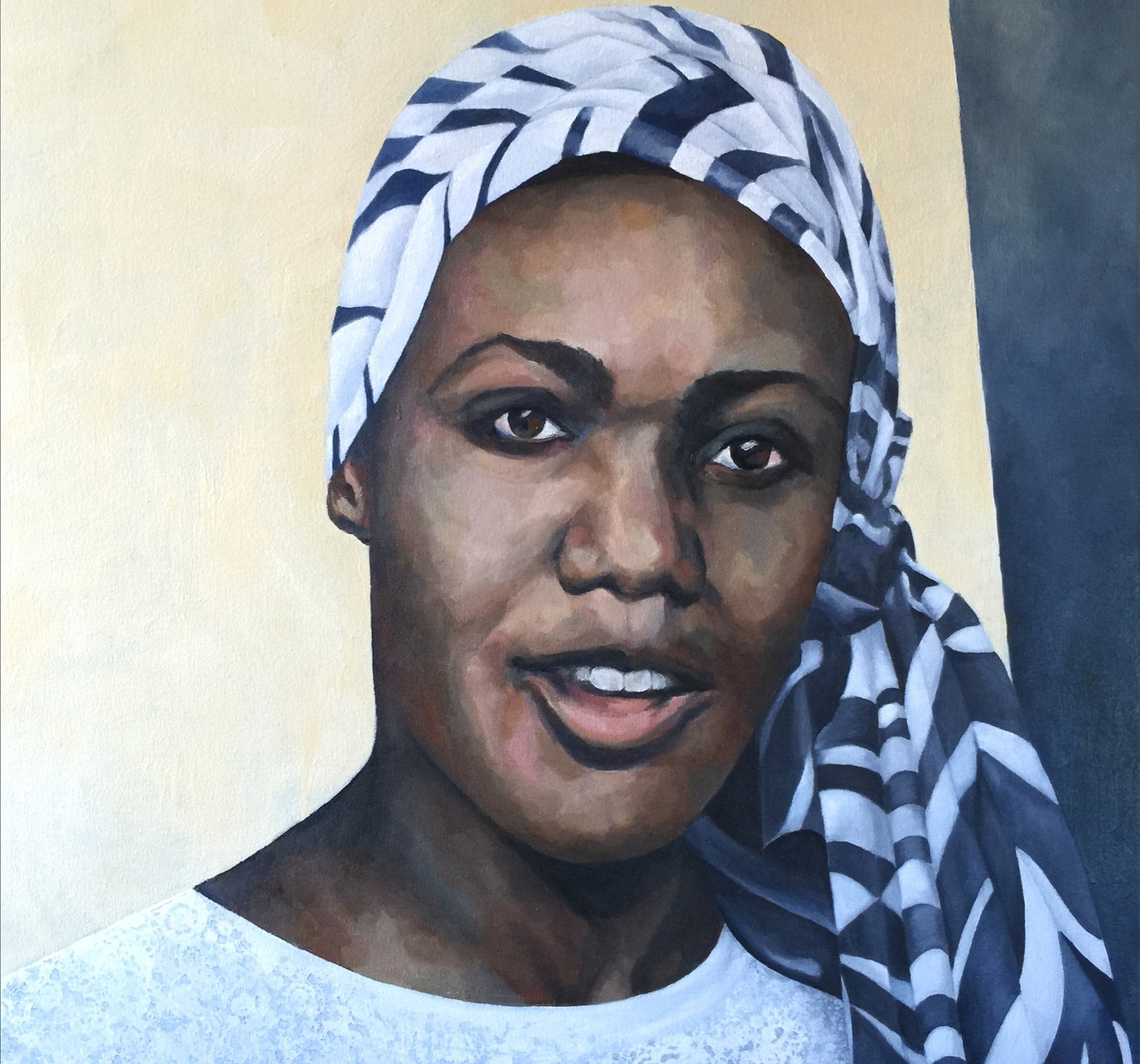Zambian activist Lucy Banda becomes first female Rhodes scholar to have portrait displayed at Oxford University
The Rhodes scholarship was founded over a century ago by Cecil Rhodes to allow foreign postgraduates to study at Oxford

Your support helps us to tell the story
From reproductive rights to climate change to Big Tech, The Independent is on the ground when the story is developing. Whether it's investigating the financials of Elon Musk's pro-Trump PAC or producing our latest documentary, 'The A Word', which shines a light on the American women fighting for reproductive rights, we know how important it is to parse out the facts from the messaging.
At such a critical moment in US history, we need reporters on the ground. Your donation allows us to keep sending journalists to speak to both sides of the story.
The Independent is trusted by Americans across the entire political spectrum. And unlike many other quality news outlets, we choose not to lock Americans out of our reporting and analysis with paywalls. We believe quality journalism should be available to everyone, paid for by those who can afford it.
Your support makes all the difference.When new Rhodes scholars first visit the prestigious Rhodes house at Oxford University they are inspired by portraits on the walls of some of the great students who have preceded them. There is the late South African leader Nelson Mandela, the former US president Bill Clinton and pioneering Canadian neurosurgeon Wilder Penfield.
Women scholars will have had a trickier time being inspired, however. Until now there hasn’t been a single portrait of a female former Rhodes scholar.
That has all changed thanks to former student Kelsey Murrell, whose campaigning means that the first ever portrait of a female Rhodes Scholar has been unveiled, more than a century after the scholarship was founded.
Zambian activist Lucy Banda Sichone’s image will take her rightful place among the other luminaries who went on to achieve great thing in the world of politics, science and the arts.

Described as “a voice of conscience” and “a great daughter of the nation,” Ms Sichone made a name for herself by vigorously challenging and chastising government officials before her death in 1998 aged just 44.
The scholarship was founded by Cecil Rhodes in 1902 to enable foreign postgraduates to study at Oxford. Widely considered one of the most prestigious scholarships in the world, it was only opened to women in 1977.
Lucy Banda profile
Born in May 1954, in Zambia’s second-largest city, Kitwe, Lucy Banda Sichone attended an all-girls secondary school and earned a law degree before coming to Oxford on a Rhodes Scholarship in 1978.
On her return she held a number of positions in government, although she was often its fiercest critic.
This criticism continued in her newspaper columns and she was forced to go into hiding after she lost a lawsuit filed against her.
In 1993 she founded the Zambia Civic Education Association (ZCEA) that continues to teach citizens rights and civic education to this day.
She also represented several displaced villagers who had been accused of squatting, and represented Zambians in court as pro bono clients.
She died five years later, aged 44, reportedly from pneumonia, although those who knew her say the cause was HIV or Aids, leaving behind four children and a number of foster children.
Newspapers printed letters from people mourning her passing, and prominent Zambians described her death as a tragedy and terrible loss, but against popular opinion, the government refused to grant Sichone a state funeral.
The following year Ms Sichone became the first female Rhodes Scholar from Zambia.
Ms Murrell told The Independent: “She wasn’t wealthy or the head of state. I think it’s powerful to have a portrait of someone who made a difference in ways that aren’t always traditionally celebrated.”
After becoming a Rhodes Scholar in 2012, Ms Murrell noticed there were no women depicted on the walls of the University’s prestigious Rhodes House.
“I saw only, mostly white men,” said the 25-year-old who hails from the US state of Kansas. She added that she spent a lot of time in Milner Hall, where the painting of Ms Sichone will be placed.
“It’s the centre of everything,” she said. “It’s where you have balls and dinners so it’s really important that now when you walk in, you will immediately see a portrait of a woman.”
After leaving Oxford last year with two masters degrees, Ms Murrell became a deputy director at the Rhodes Project, a research charity that aims to promote gender equality through education and research.
Working with the charity and The Rhodes Trust, which awards the postgraduate scholarship to selected foreign students, her dream to have women immortalised in the halls too, became a reality.
“The Scholarship showed Lucy that life could be different,” said Ann Olivarius, her friend and Chair of the Rhodes Project, which jointly commissioned the portrait, painted by another Ms Sichone’s friends, Deidre Saunder.
Ms Olivarius added that “it encouraged her to feel that she had a responsibility to make the world better, that she was worthy and could make a difference.”
Ms Sichone went onto hold a number of government positions in her home country and founded the Zambia Civic Education Association (ZCEA) in 1993.
A widow, who lost her husband early, she left four children and a number of foster children when she died aged 44 in August 1998.
The portrait is chance to “honour her life and legacy,” said Ms Murrell. “I know that for the rest of my life I’ll be coming back to Rhodes House and I’ll know that my community values the kind of work that Lucy did and that it values women and it values black women.”
Join our commenting forum
Join thought-provoking conversations, follow other Independent readers and see their replies
Comments